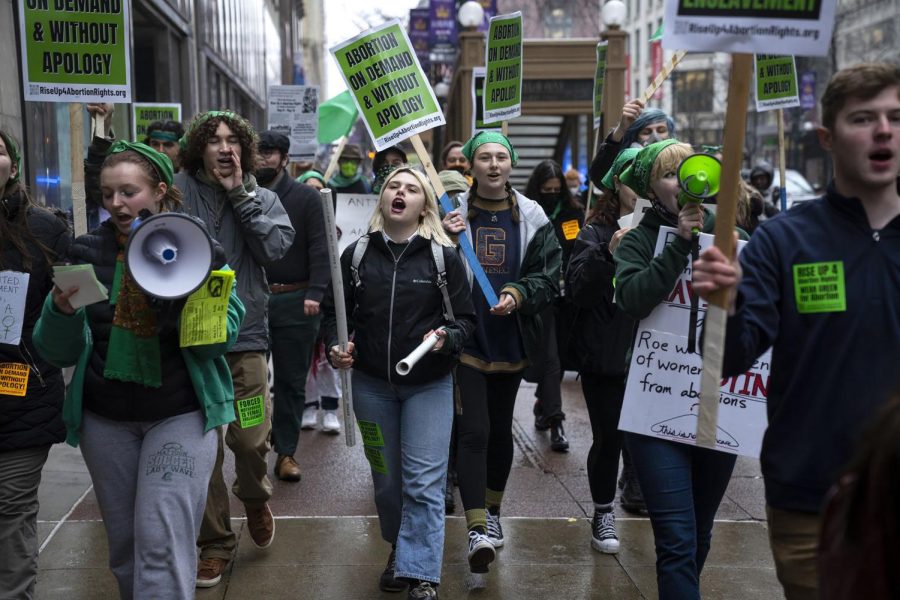Leaked Supreme Court drafts show plans to overturn Roe v. Wade
On May 3, a draft opinion of the Supreme Court went public, exposing their views on the controversial topic
E. Jason Wambsgans / Chicago Tribune / TNS
Students and activists rally outside the DePaul University Loop campus, in Chicago, on May 3, 2022, in reaction to the leaked draft decision by the Supreme Court that showed the court’s intention to overturn Roe v. Wade.
May 5, 2022
Justice Samuel Alito Jr. ‘s draft opinion on Roe v. Wade was leaked through the news site Politico on Monday night. The draft revealed that five of the nine justices want to overturn Roe and enforce stricter abortion policies.
Roe v. Wade was originally passed in 1973, protecting a woman’s right to have an abortion under the 14th Amendment. This case began in 1970 when Texas resident Jane Roe (a fake name given to protect her identity) argued with district attorney Henry Wade over a woman’s right to terminate a pregnancy at any time, without government interference. This continued in 1992 in Planned Parenthood of Southeastern Pennsylvania v. Casey, in which the Supreme Court ruled that placing restrictions on abortions was unconstitutional.
Alito’s draft claims that both Roe and Casey should be overturned, as abortion is not directly mentioned in the constitution.
“Roe was egregiously wrong from the start,” Alito wrote. “Its reasoning was exceptionally weak and the decision has had damaging consequences.”
Initial decisions such as these tend to change, especially in controversial cases.
Vice President Kamala Harris says, “If the court overturns Roe v. Wade, it will be a direct assault on the fundamental rights of self-determination to which all Americans are entitled. Roe protects the right to access abortion, it also protects a woman’s right to make decisions about what she does with her own body.”
However, some believe that abortion doesn’t need to be an option, with other options available. Supreme Court Justice Amy Coney Barret argues that abortion is about forced parenting, which she believes there are other options for.
“You and many of your amici focus on how forced parenting, forced motherhood, would hinder women’s access to the workplace and to equal opportunities…on the consequences of parenting and the obligations of motherhood that flow from pregnancy,” says Barett. “Why don’t the safe-haven laws take care of that problem? It doesn’t seem to follow that pregnancy and then parenthood are all part of the same burden.”
If Roe and Casey are overturned, this will not result in a national abortion ban but will give state governments the ability to put restrictions and bans on terminating pregnancies.











